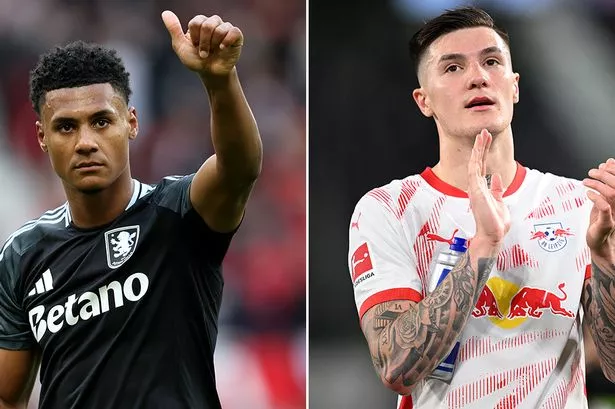Manchester United are reportedly set to deviate from their long-standing transfer policy, signaling a strategic shift towards acquiring promising young talent from European leagues rather than solely focusing on established Premier League stars. This significant change in approach sees Slovenian striker Benjamin Sesko emerge as the primary target, marking a notable departure from their previous preference for more experienced domestic players like Ollie Watkins of Aston Villa.
Historically, the Old Trafford club has often prioritised players with a proven track record in England’s top flight, valuing the immediate impact and reduced adaptation period that such experience typically brings. Ollie Watkins, with his impressive goal-scoring prowess for Aston Villa and extensive Premier League experience, perfectly fit this mold, making him an initial prime candidate to bolster United’s attacking options for the upcoming season.
However, despite Watkins’s consistent performance, the club has reportedly been deterred by Aston Villa’s hefty £60 million valuation for the England international. Coupled with the fact that Watkins, at 29, is five years older than Sesko, the long-term value proposition began to tilt in favour of the younger, less proven, yet highly promising alternative.
Benjamin Sesko, the 22-year-old RB Leipzig sensation, has garnered significant attention across Europe due to his remarkable scoring record in the Bundesliga. His impressive tally of 39 goals for the German side over the past two seasons has solidified his reputation as one of the continent’s most exciting young forwards, showcasing immense potential for future development.
The decision to pursue Sesko represents a calculated risk for Manchester United. While he possesses undeniable talent and a lower age profile that promises long-term returns, his lack of Premier League experience presents a departure from the club’s recent recruitment strategy. This move indicates a willingness to invest in future potential over immediate, albeit costly, proven English talent.
United’s urgent need for a prolific centre-forward remains a critical factor in their transfer dealings. Despite the presence of other attacking options, concerns persist regarding the consistent output from current strikers, including Rasmus Hojlund and Joshua Zirkzee, who have yet to fully convince the coaching staff with their performances in the pivotal number nine role.
Opting for Sesko, even with a similar price tag to Watkins, is viewed as a more strategically sound investment given his age and potential resale value. This signals Manchester United’s evolving philosophy, moving towards a model that balances immediate needs with sustainable growth and development within the squad.
This bold pivot in transfer policy could redefine Manchester United’s approach to squad building for seasons to come. By prioritizing long-term value and embracing emerging international talent, the club aims to build a more sustainable and future-proof team capable of challenging at the highest level, reflecting a significant shift from past recruitment tendencies.






Leave a Reply